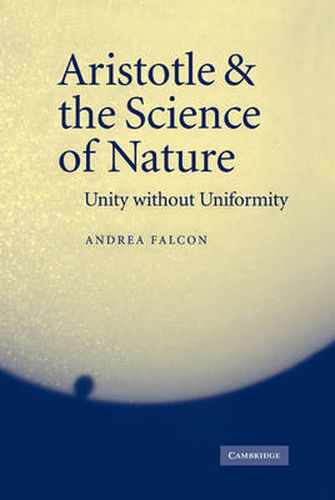Readings Newsletter
Become a Readings Member to make your shopping experience even easier.
Sign in or sign up for free!
You’re not far away from qualifying for FREE standard shipping within Australia
You’ve qualified for FREE standard shipping within Australia
The cart is loading…






In recent years the study of Aristotle’s philosophy of nature has taken a new direction, under which Aristotle is shown to have regarded the natural world, and its study, as having a clear structure. Andrea Falcon explores this new direction in order to present an accessible examination of Aristotle’s philosophy of nature. He shows that Aristotle, while systematically investigating nature, also recognized the limitations of natural science. Aristotle insisted that the celestial world is radically different from the sublunary world and that there is an important discontinuity between both worlds. This book explores the source of the discontinuity and argues that Aristotle’s conviction that the natural world exhibits unity without uniformity ultimately led to his claim that the heavens are made of a special body, unique to them. Highly accessible and clearly-structured, this book is essential reading for all students of Aristotle’s philosophy of nature.
$9.00 standard shipping within Australia
FREE standard shipping within Australia for orders over $100.00
Express & International shipping calculated at checkout
In recent years the study of Aristotle’s philosophy of nature has taken a new direction, under which Aristotle is shown to have regarded the natural world, and its study, as having a clear structure. Andrea Falcon explores this new direction in order to present an accessible examination of Aristotle’s philosophy of nature. He shows that Aristotle, while systematically investigating nature, also recognized the limitations of natural science. Aristotle insisted that the celestial world is radically different from the sublunary world and that there is an important discontinuity between both worlds. This book explores the source of the discontinuity and argues that Aristotle’s conviction that the natural world exhibits unity without uniformity ultimately led to his claim that the heavens are made of a special body, unique to them. Highly accessible and clearly-structured, this book is essential reading for all students of Aristotle’s philosophy of nature.